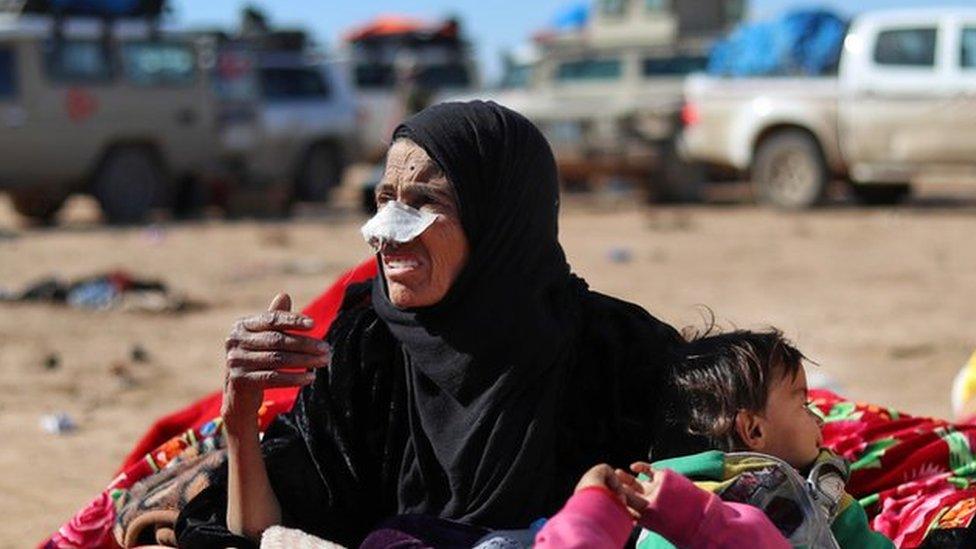British-born aid worker in Syria says citizenship loss 'unfair'
- Published
Tauqir Sharif tells the BBC's Lucy Manning it is unfair to have his citizenship taken away
A British-born aid worker in Syria has criticised the government's decision to strip him of his citizenship - but admitted that he previously fought in the country and carried an AK47 rifle.
Tauqir Sharif, from east London, moved to Syria with his wife seven years ago.
In 2017, the Home Office removed his British citizenship, saying it had seen secret intelligence and believed he had links to a group aligned with al-Qaeda.
Mr Sharif denies the links and calls the decision "unfair" and "racist".
He also said he carried the AK47 only to defend himself from bandits and armed groups.
Responding to the row, the Home Office said any decision to deprive someone of their citizenship was based "on all available evidence and not taken lightly".
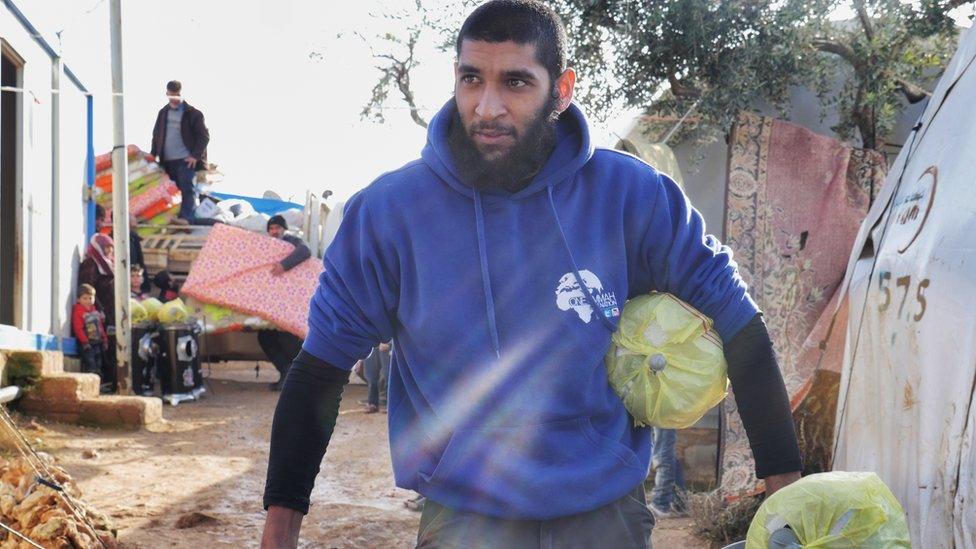
Tauqir Sharif has been working in Syria as an aid worker for a charity he founded
Mr Sharif, 31, from Walthamstow, had his citizenship removed by the then-home secretary Amber Rudd in 2017.
As Mr Sharif is entitled to Pakistani nationality through his father, the UK government is allowed to deprive him of his British citizenship as he would not become stateless.
Mr Sharif's wife is British, as are their five children who have all been born in Syria since they moved there. The couple have been unable to obtain passports for their children.
A Home Office letter to Mr Sharif said he was deprived of his citizenship because "it is assessed that you are a British/Pakistani dual national who has travelled to Syria and is aligned to an AQ (al-Qaeda) aligned group… your return to the UK would present a risk to the national security of the United Kingdom".
The letter added: "My decision has been taken in part reliance on information which, in my opinion, should not be made public in the interest of national security."
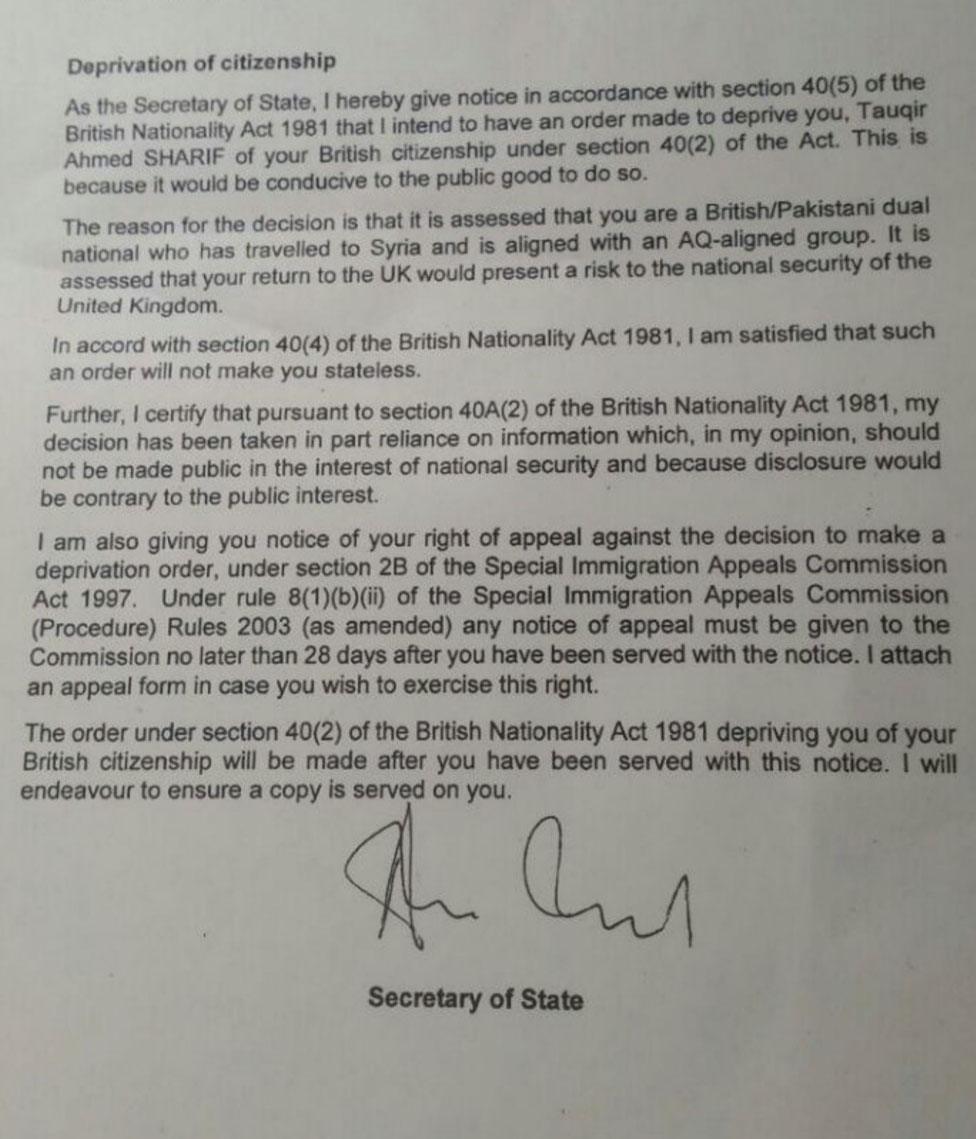

Mr Sharif is appealing against the decision and had until recently been granted anonymity by the Special Immigration Appeals Commission - the semi-secret court which decides on national security immigration cases.
He has chosen to waive his rights to anonymity in order to tell his story.
Around 150 dual nationals have had their British citizenship removed by the Home Office to date.
Recently, Shamima Begum - the London teenager who fled the UK to join the Islamic State group in Syria but now wants to come home - had her British citizenship taken away by the government.
Mr Sharif works for an aid distribution charity in Idlib, an area of north-western Syria.
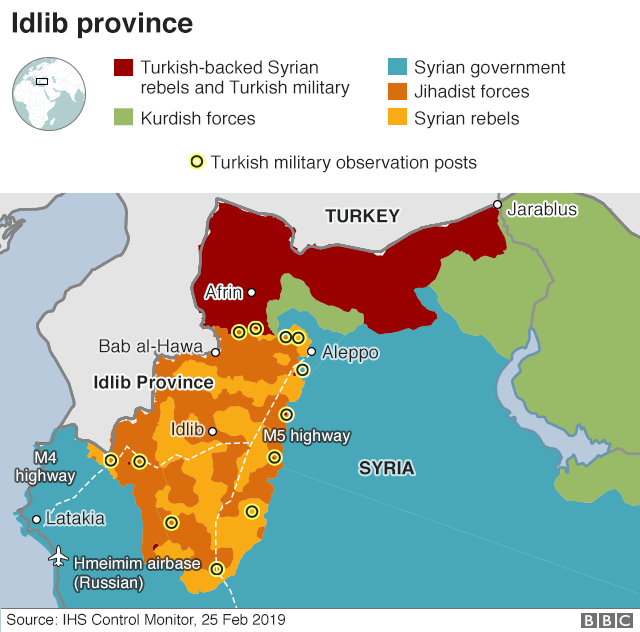
There has been civil war in Syria for eight years. More than 360,000 people have died and more than 11 million people have been displaced or fled abroad.
The war began with protests against President Bashar al-Assad, who responded with deadly force.
The violence has since escalated and many more groups - each with their own agenda - became involved. The chaos has allowed jihadist groups including Islamic State (IS) and al-Qaeda to flourish.
In 2014, IS proclaimed a "caliphate" and once controlled 34,000 square miles of territory, imposing a brutal rule on nearly eight million people. Now, it has been all but eliminated.
Idlib, where Mr Sharif works, is still controlled by a patchwork of jihadist factions. The strongest faction amongst them is HTS, an organisation which evolved from the Nusra Front - al-Qaeda's Syrian offshoot.
Asked by the BBC whether he was aligned to a group linked to al-Qaeda, Mr Sharif said: "Of course not.
"I mean I came out here to help the innocent, people that were being massacred by the Bashar regime. I am an aid worker.
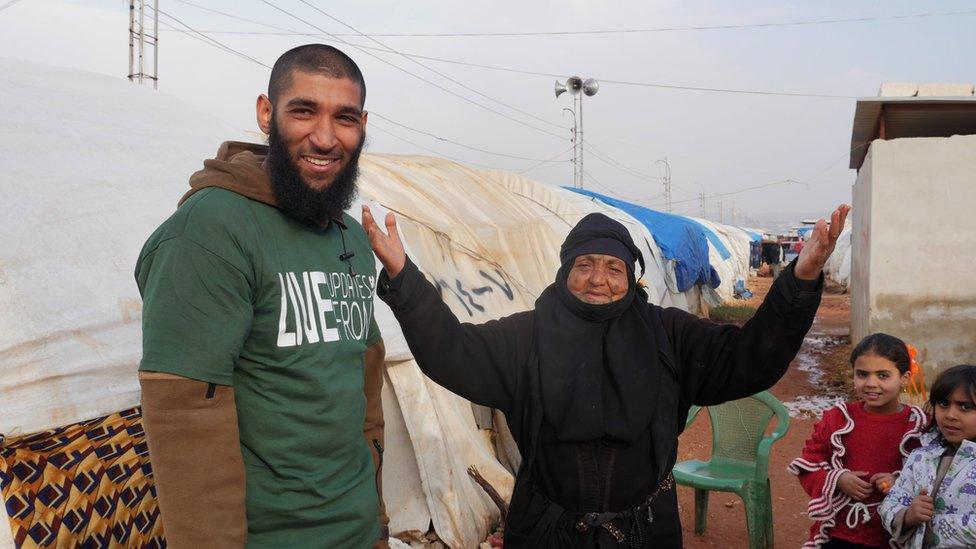
Mr Sharif set up a charity called Live Updates From Syria
"I'm saying 'OK, if there's evidence, put me in front of a jury and I will win'. I believe that 100%. But to say that there's secret evidence and it's too secret for us to share with you I think that's unfair."
Mr Sharif said a system in which the children of immigrants could be deprived of British citizenship, but other British subjects could not, was racist and unfair, and that he was speaking out to highlight the injustice, not because he was attempting to return to the UK.
'Show us the evidence'
Mr Sharif's lawyer, Daniel Furner from Birnberg Peirce, said the Home Office should be clear about what evidence it had against his client.
"He's been driving ambulances, delivering aid. He's done nothing to warrant the deprivation of his citizenship."
Challenged that the government must have information suggesting otherwise, Mr Furner said: "Well, tell us what it is. Give us some indication of what it is so that we can defend it. Because Mr Sharif doesn't accept that."
But others expressed more scepticism. Lina Khatib, director of the Middle East and North Africa Programme at the think tank Chatham House, said many people who had gone to fight in Syria did so under the pretext of doing charity work.
She added: "Certainly all the aid workers I know have never picked up guns in conflict."
AK47 'to defend aid convoys'
Mr Sharif also said he was not "apologetic" about having to defend himself in Syria.
"You know I have on occasion had to defend myself and other Syrian people. I've been on distributions where we have been surrounded, nearly besieged in Aleppo."
And pressed on whether his admission that he had to defend himself meant he had fought and carried a weapon, Mr Sharif confirmed that was the case - but said that did not mean he was a fighter.
He said that up until 2017 he had carried an AK47 rifle while delivering aid because of, he claims, the risk of kidnap and theft from bandits and armed groups.
He also said he had previously been involved in firefights when convoys had come under attack.
For some years he said he had been unable to afford armed security for his convoys but since 2017 he has had security guards to protect aid deliveries.
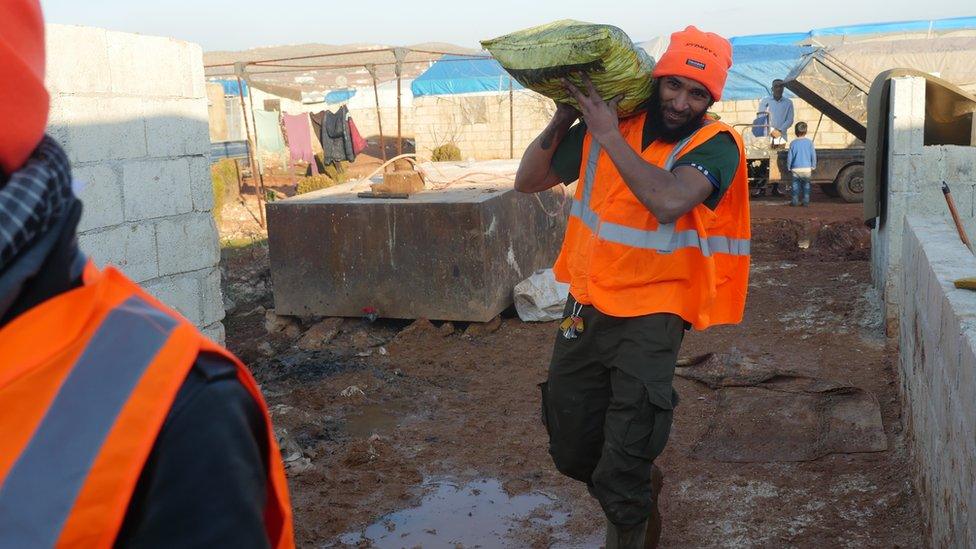
Mr Sharif added that Syria remained dangerous and he still carried a handgun for protection.
Condemning IS, Mr Sharif said: "ISIS has tried to kill me. ISIS has tried to blackmail me.
"They even say that I'm not Muslim because I didn't join their caliphate and all of this kind of stuff. They are a bigger threat to Muslims [than to anyone else] and have killed so many Muslims here in Syria."
Tauqir Sharif left Newham in 2012
Mr Sharif's province, Idlib, is one of the last pockets of resistance to President Assad and is surrounded on three sides by regime forces and their Iranian and Russian allies.
Should it fall, Mr Sharif and his family will face a dilemma. He said he did not expect to win his appeal to have his citizenship reinstated and, while he would like his children to be educated in Britain, it was more likely that the family would try to resettle in Turkey.
Responding to Mr Sharif's criticism, a Home Office spokesman said the home secretary's priority was "the safety and security of Britain and the people who live here".
"In order to protect this country, he has the power to deprive someone of their British citizenship where it would not render them stateless.
"We do not comment on individual cases, but any decisions to deprive individuals of their citizenship are based on all available evidence and not taken lightly."
- Published2 May 2023

- Published23 March 2019
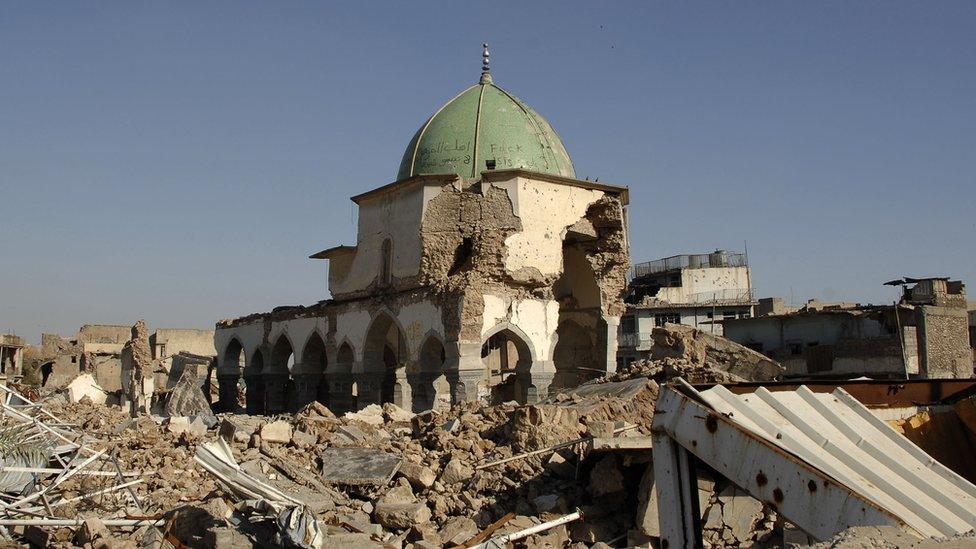
- Published22 February 2019
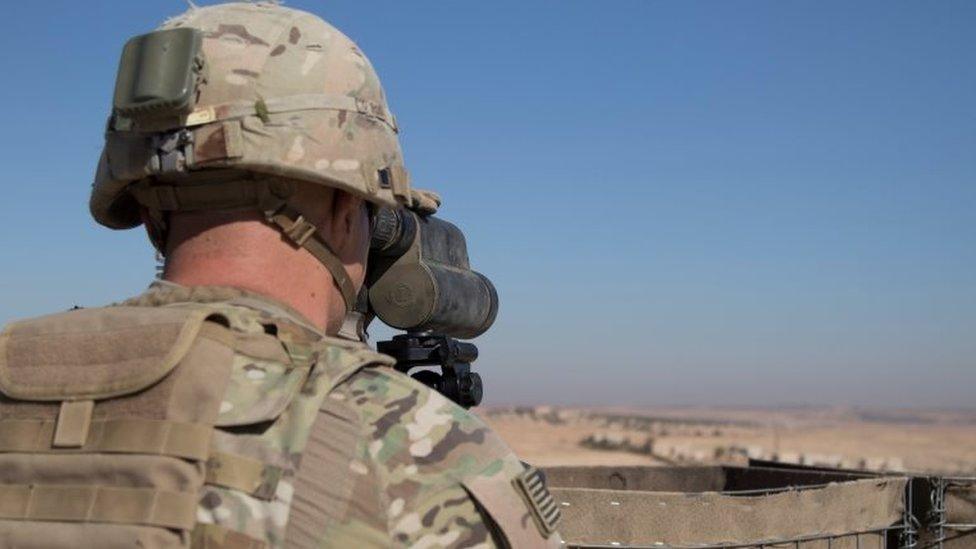
- Published21 February 2019
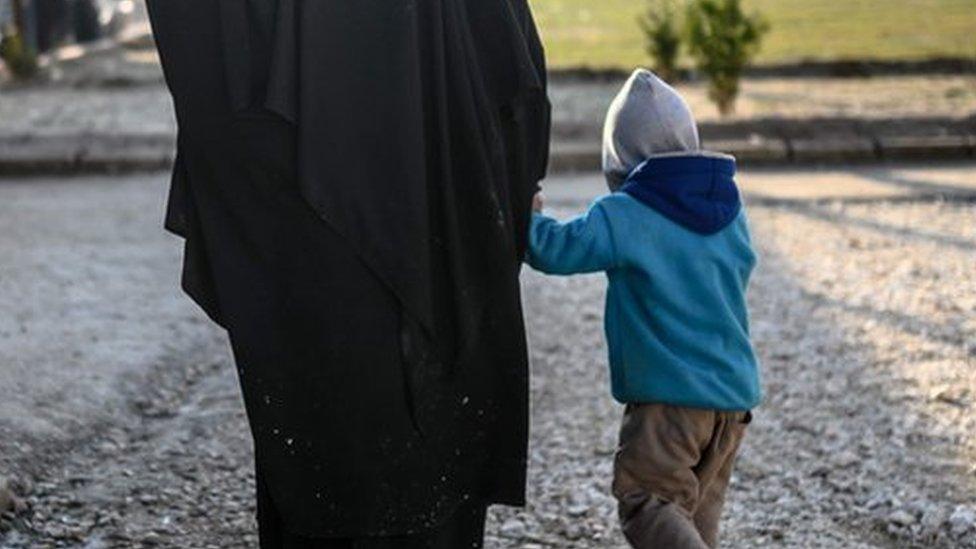
- Published7 January

- Published26 February 2019
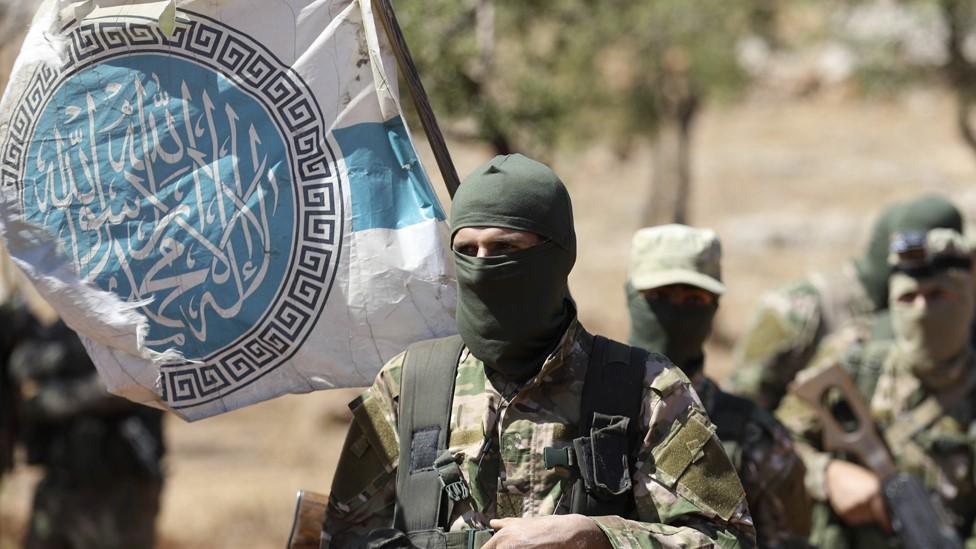
- Published7 February 2019
